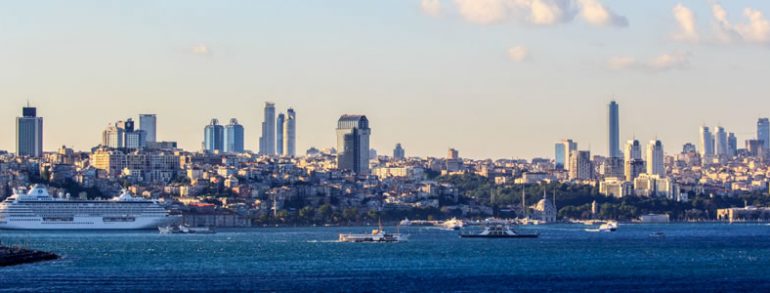Istanbul bears the characteristic of being the capital city of three Great Empires and she is also one of the few cities which has been the center of the country's economic life. Although the city did not become the political capital for the new Republic, established in 1923, it has always been one of the country’s economic centers and has never lost its status as the capital predestined for the country.
When we glance at the city’s economy and working-occupational-professional life, Istanbul generates about 23% of Turkey's Gross National Product (GNP). Its annual contribution to the state budget is about 40%. On the other hand, the city's share of government expenditures has remained roughly 7-8%. The headquarters of all private banks, and 21% of the total number of bank branches in Turkey, are located in Istanbul.
Istanbul has a central importance in both domestic and international trade. The added value created in Istanbul, reaches 26.5 percent of provincial total added value, and trade is the second most important sector in Istanbul after industry. In Turkey, 27% of the general added value created in the commercial sector is created by Istanbul. Istanbul is, at the same tim,e the most important export and import gate of Turkey.
Exports from Istanbul make up 46% of Turkey’s total, imports into Istanbul make up 40% of Turkey’s total. Istanbul has at hand a great chance thanks to its being the center of tourism and the location of a convention center. One-fourth of the city’s hotels are owned by five star hotels, and almost one-fifth are owned by four star hotels.
Istanbul is also the center of the country's air transport industry. Along with Atatürk Airport, Sabiha Gökçen Airport is located in Pendik on the Anatolian side of the city.. Furthermore, 14 of the 153 museums located Turkey are found in Istanbul, and 34% of the two million four hundred thousand pieces on display are exhibited in Istanbul.
New sectors in the city, such as finance, tourism, service, banking as well as head offices have been substituted for industry in recent years. On the other hand, despite the situation in industry, the heart beat of money markets continues to grow in Istanbul. Due to its geographical location, the first four hours of the business day overlap with Asian countries and the other four hours with European countries. Because of its unique location, Istanbul has become a natural financial center for the entire region.
Today, 35% of collected deposits and 33% of credit used in Turkey occurs in Istanbul. In addition, almost all insurance companies operating in the country are located in Istanbul. The Istanbul International Stock Exchange Free Zone, based in Istanbul, has experienced an exponential growth among the globally known Stock Markets in the world. Moreover, there is a gold market in Istanbul in which gold bars are traded freely. The city forges ahead in becoming a financial center, especially in the domains of leasing, factoring companies, private financial institution, etc.Istanbul will continue to accelerate the pace of becoming a financial center associated with liberalized financial markets and active stock markets. With the decision of moving the Turkish Central Bank from Ankara to Istanbul, it is expected to turn the city of Istanbul into an important world financial center. The main objective is to turn Istanbul into a head office of the financial centre of the world.






